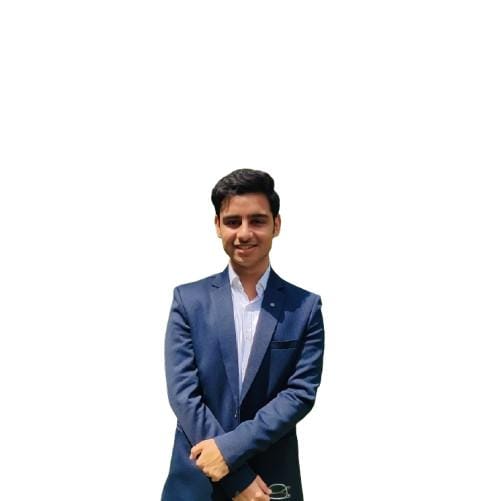INTRODUCTION
A “dynamic+” injunction order has been issued by the Delhi High Court to prevent rogue websites and social media accounts from abusing artificial intelligence (AI) to violate the personality rights of Sadhguru, also known as Jagadish “Jaggi” Vasudev, the founder of the Isha Foundation.
Additionally, YouTube and X (previously Twitter) were directed by Justice Saurabh Banerjee to reveal the Basic Subscriber Information of users of these accounts and to remove accounts proven to be used for such activities.
The causes of this problem and the future of similar problems in India will be examined in this essay.
HISTORY AND FACTS OF THE CASE
Sadhguru had petitioned the Court because he believed that the abuse of AI was violating his right to personality.
He gave the Court examples, including a rogue website that spread false information about his arrest and called for his release in an attempt to persuade his followers to download an app or sign up on the platform; a phony interview that purported to show Sadhguru endorsing a questionable trading platform called “Trendtastic Prism”; social media accounts that advertised a book on pregnancy advice and sold a hair growth product; and even artificial intelligence (AI)-generated motivational speeches that were mistakenly credited to Sadhguru.
In order to produce deep fakes and obtain illegal financial advantage, it was claimed that artificial intelligence (AI) techniques were being utilized to alter and doctor Sadhguru’s voice, talks, and interviews without permission.
Since they erroneously implied an association or endorsement by him, Sadhguru questioned the unapproved and illegal use of his name, image, likeness, and other distinguishing characteristics, claiming that it infringed his personality rights and his right to publicity.
JUDGEMENT OF THE COURT
In order to safeguard Sadhguru’s personality rights, the Court observed that a compelling case had been presented for an ex parte, temporary dynamic injunctive order. A dynamic injunction is a type of comprehensive restraining order that also covers future rights violations.
When the Court issued the dynamic injunction order against any rogue platform found to be violating Sadhguru’s personality rights, it explained that “the rights of a plaintiff (Sadhguru) cannot be rendered otiose in this world of rapidly developing technology and for that, enforcement of intellectual property rights on any social platform, including but not limited to the internet as well as the real world, ought to be visible and effective.”
OTHER IMPORTANT OBSERVATIONS
The Court pointed out that Sadhguru had a distinct personality and was a respected global source for spiritual counsel; any abuse or misrepresentation of this would damage both his reputation and the public’s trust in him.
The Court determined that any internet platform that violates Sadhguru’s personality rights in this way has a strong prima facie cause for an interim injunction order.
Due to the rogue websites’ use of identity masking and URL redirection, a prima facie case of infringement of personality rights has been established. According to the Court, “under these circumstances, the present case appears, prima facie, to be a clear example of personality rights infringement by entities such as defendant nos. 1-41, who are lawfully benefiting from the plaintiff’s personality rights while using modern technology to conceal their identities.”
In order to capitalize on Sadhguru’s name and fame, it was seen that these social media accounts were altering his voice, picture, and likeness utilizing contemporary technology in an effort to increase views and subscribers. The likelihood that the (wrong) message will spread like wildfire with little water left to put it out will increase if nothing is done. In any case, the Court declared that it is utterly unrealistic to expect the plaintiffs, particularly plaintiff number one, to hunt after every “unknown” defendant who happens to be a “rouge website” and/or to reply to the general public regarding the plaintiffs’ “originality.”
In order to stop the production and distribution of such content, the Court imposed a restraining order.
IMPORTANT ORDERS
Additionally, it instructed the Union Ministry of Electronics and Information Technology (MEITY) and the Department of Telecommunications (DoT) to publish a notification making sure social media companies and internet service providers follow the Court’s instructions.
Additionally, the Court summoned the rogue websites and requested a response by October 14.
REPRESENTATIONS MADE
Sadhguru was represented by attorneys Saikrishna Rajagopal, Deepika Pokharia, Angad S. Makkar, Disha Sharma, and Pushpet Ghosh of Saikrishna & Associates.
Advocate Mamta Jha, Co-Managing Partner from Inttl Advocare, represented Google alongside Advocates Himani Sachdeva, Rahul Choudhary, and Shruttima Ehersa.
Advocates Tribhuvan and Sandeep Kumar Mahapatra represented the Ministry of Electronics and Information Technology and the Department of Telecommunications.
CONCLUSION
The Delhi High Court issued an order safeguarding the publicity and personality rights of Isha Foundation founder Sadhguru Jaggi Vasudev. It also prevented a number of pirate websites from abusing his personality attributes through the use of artificial intelligence (AI). Regarding his voice, name, signature, image, resemblance, vocal, articulation style, and distinctive clothing, appearance, or appearance, it stated that Mr. Vasudev had developed a distinctive personality. According to the court, the offensive material not only violated Mr. Vasudev’s personality rights, but the defendants had also gone so far as to use contemporary technology to alter his voice, likeness, photographs, and videos for profit.
ABOUT THE AUTHOR

SAHIL YADAV, a law student at NLIU Bhopal, is a dedicated and passionate legal writer, who is keen to explore International law, Constitutional Law, Criminal Law, Forensic Psychology and publish research papers and articles on contemporary legal nuances and issues. He is also interested in the intersection of disciplines like history, psychology, political science, philosophy, and sociology with law.
